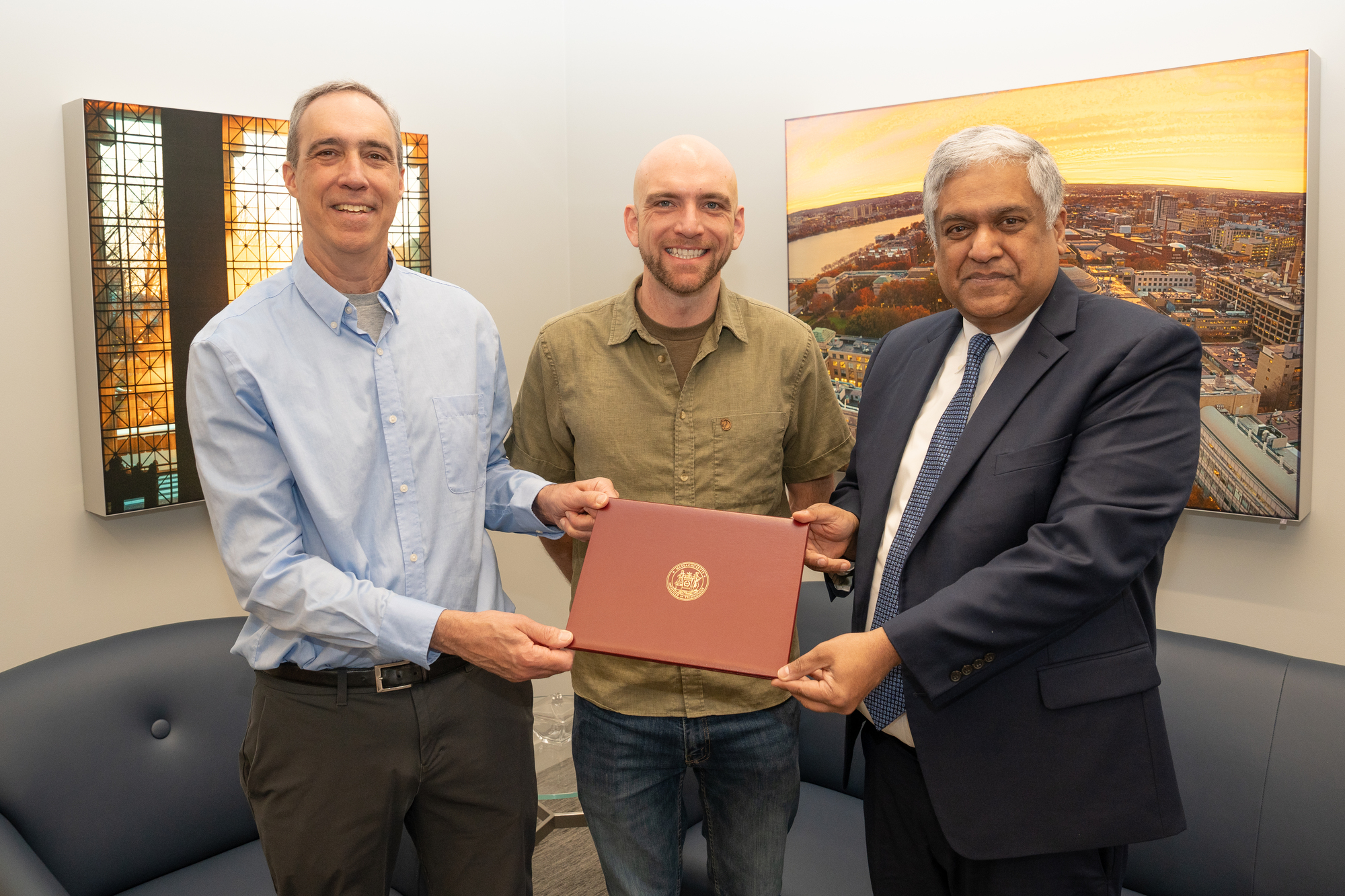Henry Corrigan-Gibbs named Junior Bose Award winner
The Junior Bose Award is given annually to outstanding contributors to education from among the faculty members who have been promoted to associate professor without tenure.
May 20, 2025
 Henry Corrigan-Gibbs named Junior Bose Award winner
Henry Corrigan-Gibbs named Junior Bose Award winner Henry Corrigan-Gibbs, a faculty member in the Department of Electrical Engineering and Computer Science (EECS), is a recipient of this year’s Junior Bose Award.
Corrigan-Gibbs’s research focuses on computer security, cryptography, and computer systems. He builds systems that use cryptography to empower and protect their users, including the Tiptoe system, which “lets a client search a chunk of the web while hiding its query from the search engine itself.”
“Henry’s research is not only academically highly regarded but has also influenced the design of privacy-preserving systems at companies such as Apple and Mozilla,” cited the EECS department in their nomination. “His commitment to both teaching and research exemplifies excellence in education and mentorship.”
Of the classes Corrigan-Gibbs teaches, he has two favorites, which have allowed him to collaborate with colleagues and get to know his students.
“My first favorite has been the new undergrad class in cryptography and security, 6.1600: Foundations of Computer Security, co-taught with Srini Devadas, Yael Kalai, and Nickolai Zeldovich. Being able to learn from each of them about the course material and about teaching was very fun and very valuable,” Corrigan-Gibbs said. “My other favorite teaching experience has been leading recitations for 6.1800: Computer Systems Engineering. I try to make my recitations as interactive as possible, so there are lots of games, debates, and other activities woven into the syllabus.”
Corrigan-Gibbs’s overall approach to teaching involves several key principles: only teach material you are excited about (“teaching CS material is a joy”); make everything as approachable as possible so every student can succeed; and the customer is always right. “I take feedback from students extremely seriously,” he said. “If the students do not understand something by the end of the semester, it is always my fault—never theirs.”
Corrigan-Gibbs credits many of his teachers with having an impact on his own approach as an educator now. Going all the way back to elementary school, he got his first taste of “mens et manus” from his teachers Maddie Hogan and Brie Regis, “who showed me by example that learning and playing can be the same thing.”
As an undergrad at Yale, he learned CS basics from some “extraordinarily talented teachers, including Daniel Spielman, Stanley Eisenstat, Michael Fischer, and Dana Angluin.” His PhD advisor at Stanford, Dan Boneh, is another teaching role model. His research mentors, including Bryan Ford, David Mazières, Phil Levis, and Keith Winstein, shaped his approach to presenting technical material in an accessible way.
Henry also credits his graduate students and postdocs (Alexandra Henzinger, Ryan Lehmkuhl, Julia Len, and Emma Dauterman) with “constantly teaching me new techniques and ideas and ways of thinking.”
Corrigan-Gibbs’s dedication to teaching and education in computer security has had a transformative impact at MIT and beyond. He is a beloved lecturer and recitation instructor in the EECS community.